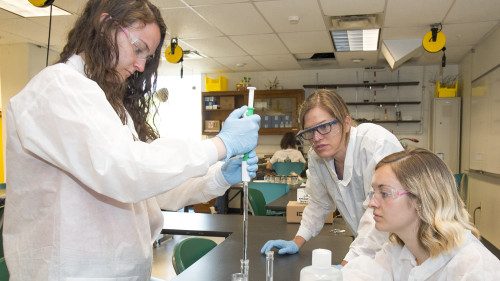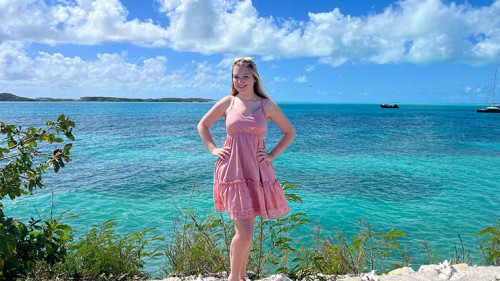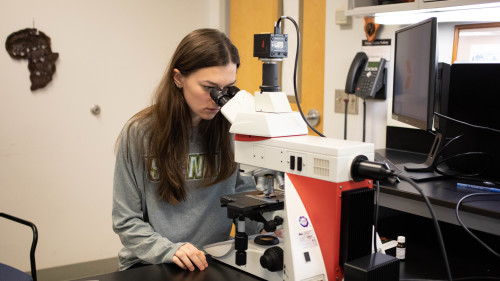
The family tree on Kali Cucharale's '23 grandmother's side of the family didn't branch out beyond her grandmother. Kali assumed she was Italian, but because her grandmother was adopted – with little information – as an infant, the family was only guessing.
About five years ago, the family decided to explore her ancestry using DNA. They sent a sample off to ancestry.com, and, surprise! She was 98% Sicilian. Okay, that wasn't much of a surprise, but the real shocker came a few months later.
A man in Utica had spent nearly 15 years looking for his half-sister. He had known about her existence much longer than that, but he promised his parents he wouldn't search until after they passed. When they did, his exhaustive search uncovered absolutely nothing. And then, about three years ago, an alert pinged through ancestry.com.
Once Kali's grandmother's DNA profile landed in the Ancestry database, a genetic genealogist helped the Utica man connect with his half-sister – a woman he had delivered mail to for years. He actually knew Kali's late grandfather, but had no idea Kali's grandfather's wife was his sister. Although he passed away a few months ago, the siblings bonded late in life.
That's the story that partly explains why Kali was interested in an internship with DNA Investigations.
DNA Investigations, located in Saratoga Springs, asks one simple question on its website.
"Looking for someone?"
The company was founded by genetic genealogist Tobi Kirschmann (right, with Kali) who worked as a criminalist in California. In fact, Kirschmann helped to solve the 40-year-old cold case of the Golden State Killer using DNA tracing. Two years ago, she founded DNA investigations, and whether it's law enforcement tracking a suspect or a family working on its tree, if you're looking for someone, she can help. This spring, Kali is part of her team.
"We use Ancestry, Google, 23 and Me, census websites, social media – anything we can get on a person. The DNA is given to us and we enter it into the system. Once we get a hit, we start building the tree."
Right now, Kali and her team have been assigned an already solved case. They're working their leads (without knowing the outcome) to sharpen their genetic sleuthing skills. Any day, a police department anywhere in the country may reach out with a sample of DNA. At that point, practice is over.
Kali loves the puzzle, and the hunt, but professionally, she'd actually like to help law enforcement in a different way. The biology major has a minor in forensics science. She'd like to pursue a master's degree in forensics science, and then perhaps medical school. After that, she's interested in a career as a medical examiner.
"I've been into forensics since I was a little girl. I would watch a lot of Law & Order: Special Victims Unit with my grandmother."
Plus, her dad, in addition to being a police officer, is a practicing funeral director. Kali would tag along to funeral homes when she was little, and while she would occasionally get creeped out "depending on the condition" she actually liked it.
"I watched two live autopsies in high school and that's part of the reason why I pursued science in college. As odd as it sounds, I find the autopsies fascinating."
Like genetic genealogists, medical examiners follow the clues to solve a puzzle or a crime. Kali is convinced medical school is in her future. Right now, though, she is content working with DNA studies, and then following the clues to wherever, in her future, they may lead.

